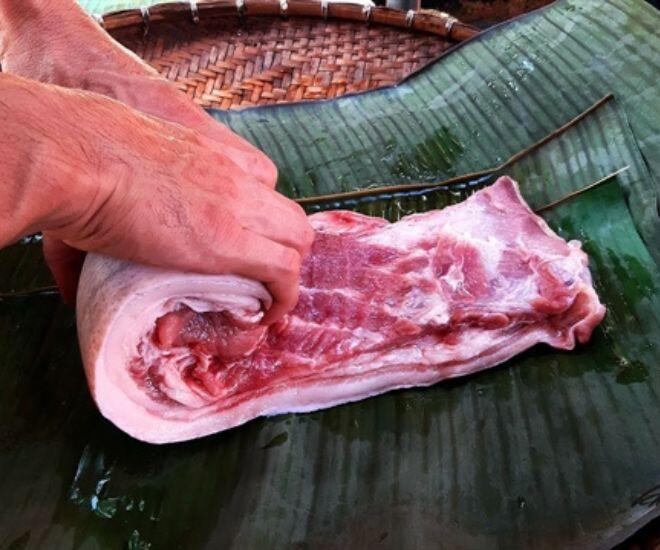
Gio Nay, also known as Gio Lay, Gio Cuon, or Gio Mo, is a culinary treasure deeply rooted in the traditions of Thai Binh province, Vietnam. Unlike common varieties such as Gio Xao, Gio Bo, Cha Mo, or Cha Que, which are made from minced meat, Gio Nay stands out with its unique preparation method—using whole pork belly. This distinct approach not only imparts a signature flavor but also elevates it to a symbol of local pride.
The star ingredient of Gio Nay is pork belly, a cut that combines lean meat, fat, and skin. This harmonious blend results in a texture that is both crispy and tender, rich yet not overwhelming. After cleaning, the meat is meticulously marinated with pepper, salt, MSG, and finely minced garlic and shallots. Some families add wood ear mushrooms for an extra crunch. The marination process, lasting 30 to 45 minutes, ensures the flavors penetrate every fiber of the meat.
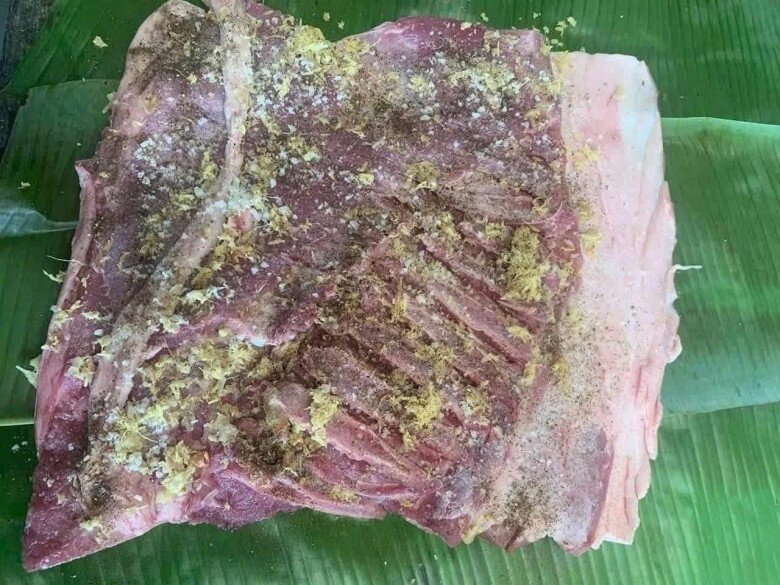
Once marinated, the meat is wrapped in banana leaves, tightly rolled, and secured with twine. This step demands precision; a loose roll results in a disjointed final product, compromising both appearance and taste. Skilled wrappers ensure the lean meat is evenly distributed, with the skin enveloping the entire roll, creating a cohesive block.
The wrapped Gio Nay is then boiled in a large pot for 4 to 5 hours. The heat must be carefully regulated—too high, and the meat becomes mushy; too low, and it remains undercooked. A steady medium flame ensures the meat is thoroughly cooked, aromatic, and retains its crispness and sweetness. After boiling, the roll is cooled and pressed, similar to pressing sticky rice cakes, to compact the ingredients, resulting in a firm, cohesive texture. The final product boasts a natural green hue from the banana leaves and an irresistible aroma.
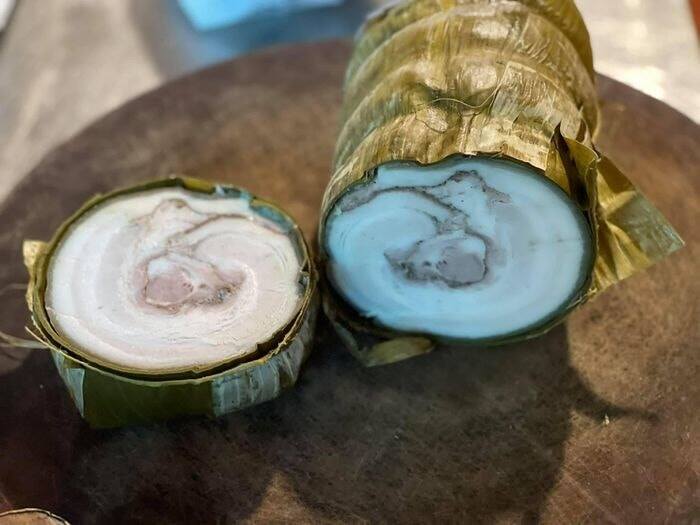
Gio Nay can be shaped into rounds or squares. It is typically sliced into rectangles and served with pickled onions or radishes to balance its richness. This pairing transforms what could be a heavy dish into a refreshing, palate-pleasing experience, appealing to both adults and children.
In Thai Binh, Gio Nay is a staple at festivals, anniversaries, and weddings, embodying the host’s hospitality. Many families also gift it to loved ones during the Lunar New Year. Despite its intimidating appearance, its melt-in-your-mouth texture, refreshing taste, and aromatic blend of pork belly, pepper, and banana leaves win over even the most hesitant diners, making it an unforgettable culinary experience.
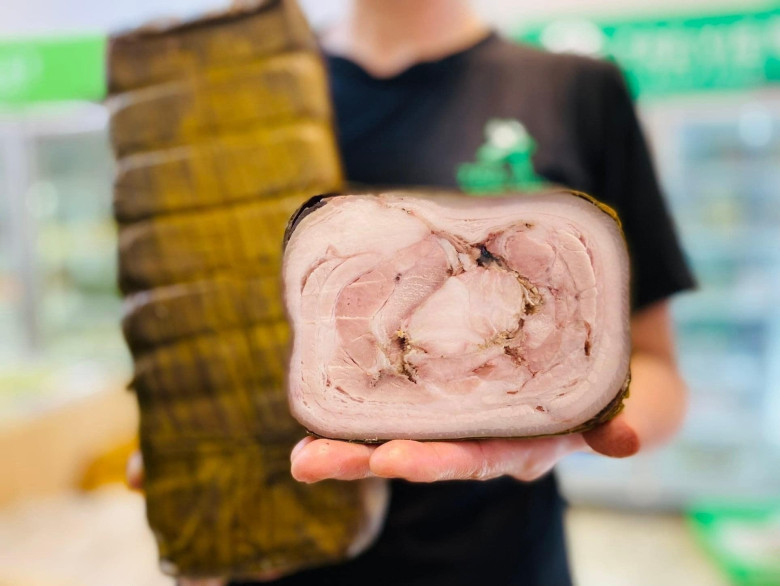
Priced between 300,000 and 400,000 VND per kilogram, depending on the season, Gio Nay often sells out, especially during Tet, due to high demand and fluctuating ingredient costs. Many are willing to pay a premium for this delicacy, considering it essential for their New Year feasts.
Gio Nay is more than a dish; it’s a testament to Thai Binh’s culinary ingenuity. In Vietnam’s diverse food landscape, it showcases the creativity and sophistication of the rice-growing region’s cuisine. Transforming simple pork belly into an unparalleled delicacy, Gio Nay is a true original.
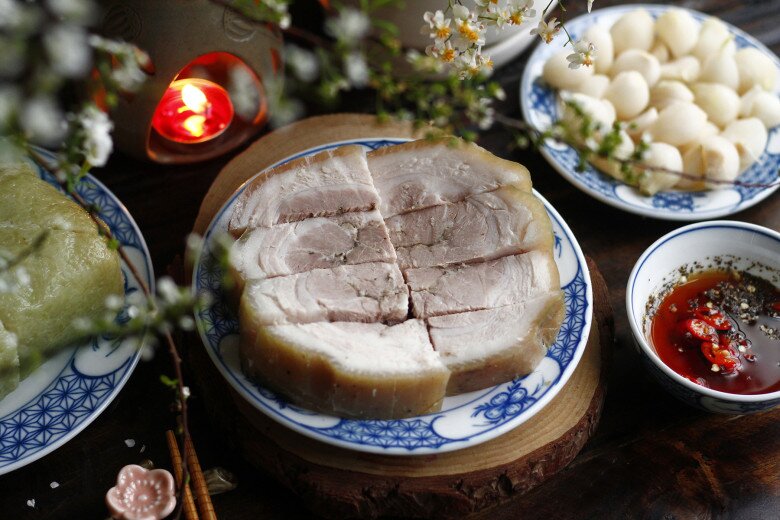
Today, as culinary tourism thrives, Gio Nay has become Thai Binh’s culinary ambassador. Visitors flock to the province not only for its scenic beauty and cultural heritage but also to savor this renowned specialty. Blending tradition with modernity, Gio Nay has transcended local boundaries, becoming a must-try for anyone visiting Thai Binh.
Gio Nay is thus not merely a palate cleanser but a vibrant illustration of Vietnamese culinary diversity. Its refreshing flavor, unique texture, cultural significance, and visual appeal have cemented its place in the hearts of food enthusiasts, making it a cherished specialty of the rice-growing region.
































